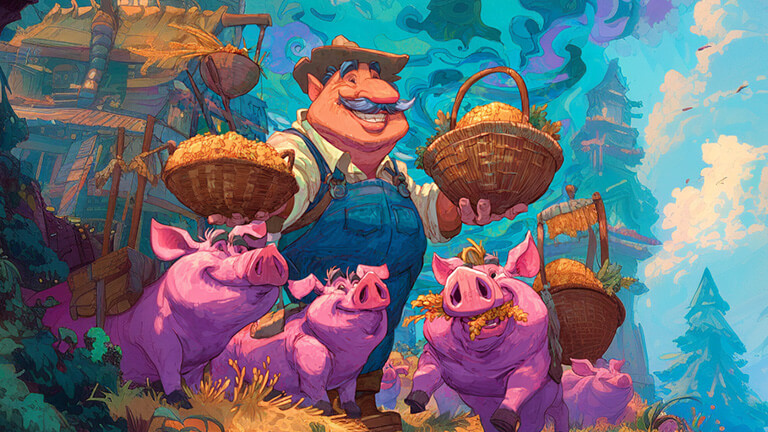Feeding pigs#

Pigs eat once a day at will and produce immediately afterward. With the architectural marvel of the Energy System, feeding can be streamlined.
Basic rules for feeding and keeping pigs:
- Each clone in the barnyard has its own feeding trough, from which only the pigs belonging to it are fed.
- The pigsty uses a common feeder for all animals in the account, provided the building has sufficient capacity.
- After the construction of the pigsty, the animals begin to feed in it.
- The feed can be loaded with a reserve for several days or months.
- Excess feed may be removed back into the clone’s inventory.
- Each age group has its own optimal feed ration.
- An optimal diet ensures maximum weight gain and production.
- Deviation from the optimal diet reduces the rate of weight gain.
- With poor nutrition, production decreases.
- If nutrition is inadequate, the time required to prepare for mating and the gestation period increases.
- Sows and boars don’t die of hunger.
- In the complete absence of food, animals lose weight.
- Hungry animals do not produce.
- In the absence of food, the rate of gestation and preparation for mating is zero.
- With very little or no feed, animals lose one-third of their potential daily weight gain.
- The weight loss rule does not apply to pigs in the 351-380 day age group.
- If the animal’s weight drops to 0 kg, it dies.
Optimal diet for pigs#
When fed the optimal diet, your pigs will achieve the maximum possible weight gain and produce the maximum amount of manure.
Suboptimal (incomplete) diet for pigs#
If you do not have the opportunity to feed your pigs the optimal diet, you can change it at your discretion; however, it is worth bearing in mind that it will affect the pigs livelihood.